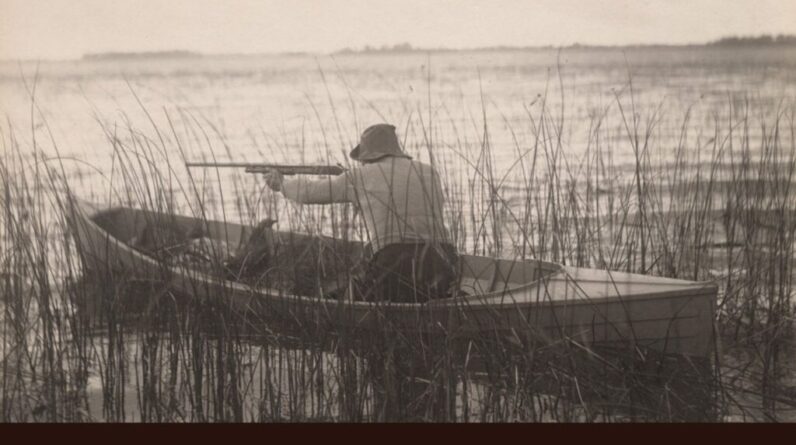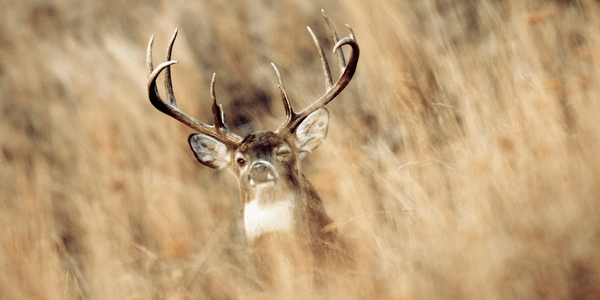
Have you ever wondered what precautions you should take when fishing or hunting in cold water? It’s important to stay safe and prepared when engaging in these activities, especially when the temperatures drop. In this article, we’ll discuss some essential precautions that anglers and hunters should consider in order to have a successful and safe experience in cold water. Whether you’re an experienced angler or hunter, or just starting out, learning about these precautions can be beneficial for everyone. So, let’s dive in and explore what you need to know.
One of the most crucial precautions to take when fishing or hunting in cold water is to dress appropriately. Wearing the right clothing layers can help regulate your body temperature and prevent hypothermia. It’s important to wear a moisture-wicking base layer, insulating mid-layers, and a waterproof outer layer to protect yourself from the cold water and harsh elements. Additionally, don’t forget to wear insulating gloves, a warm hat, and waterproof boots to keep your extremities warm. By dressing properly, you’ll be able to stay comfortable and focused throughout your outdoor activity.
Another precaution to consider is to inform someone of your plans. It’s always a good idea to let a family member or friend know where you’ll be fishing or hunting, as well as the estimated duration of your trip. This way, if anything goes wrong or you encounter any difficulties, someone will be aware of your whereabouts and can provide assistance if needed. Additionally, check the weather forecast before heading out and be prepared for changes in conditions. If the weather becomes too severe or dangerous, it’s best to reschedule your trip for another day. Safety should always be the top priority.
Lastly, it’s important to bring the necessary safety equipment with you. A well-fitted life jacket is essential when fishing or hunting in cold water, as it can potentially save your life if you fall overboard or encounter unexpected circumstances. Additionally, make sure to pack a first aid kit, a whistle or signal device, and a mobile phone with a waterproof case. These items can prove invaluable in emergencies and allow you to call for help if needed. Being prepared with the right safety equipment can make a significant difference in your overall safety and well-being.
In conclusion, taking precautions when fishing or hunting in cold water is vital for your safety and enjoyment. By dressing appropriately, informing someone of your plans, and bringing necessary safety equipment, you can ensure a successful and secure experience. In our upcoming article, we’ll delve deeper into each of these precautions and provide more in-depth insights to help you fully understand how to stay safe and thrive in cold water angling and hunting expeditions. Stay tuned to learn more!
Clothing and Gear
When fishing or hunting in cold water, wearing appropriate layers is essential. Layering your clothing allows you to adjust to changing temperatures throughout the day. Start with a moisture-wicking base layer to keep you dry, followed by an insulating layer for warmth, and then a waterproof outer layer to protect you from wind and moisture.
In addition to layering, it is crucial to use waterproof and insulated boots. Cold water can quickly seep into regular footwear, leading to discomfort and potential health risks. Insulated boots provide necessary warmth, while waterproof boots keep your feet dry even in wet conditions.
Choosing suitable gloves and hats is another vital aspect of cold water fishing or hunting. Your hands and head are particularly susceptible to heat loss, so wearing gloves and a hat can help maintain your body temperature. Opt for gloves that provide insulation and dexterity, allowing you to handle equipment efficiently. A hat should cover your ears and provide additional warmth to your head.
Safety Equipment
Safety should always be a top priority when fishing or hunting in cold water. One of the most important precautions is carrying a life jacket or a flotation device. This is crucial in case of accidental immersion in cold water, as it can provide buoyancy and increase your chances of survival.
Having a whistle or signaling device is also essential. These devices can be used to alert others if you find yourself in an emergency situation. A loud whistle can attract attention and help rescuers locate you quickly. Additionally, consider using a safety harness if the terrain is rugged or if there is a risk of falling into the water.
Cold Water Immersion
Understanding the risks of cold water immersion is crucial for anglers and hunters. Cold water can lower your body temperature rapidly, leading to hypothermia. Hypothermia occurs when your body loses heat faster than it can produce, and it can be life-threatening. Therefore, it is essential to know the signs and symptoms of hypothermia, which include shivering, confusion, drowsiness, and loss of coordination.
If you find yourself immersed in cold water, it is crucial to react promptly. Get out of the water as quickly as possible and remove any wet clothing. If that is not possible, try to stay afloat and minimize heat loss by curling into a fetal position. This position helps protect vital organs and conserve body heat. Remember that staying calm and focused is key to increasing your chances of survival.
Fishing Precautions
When ice fishing in cold water, it is essential to check the ice thickness before venturing out. Ice thickness varies, and it is crucial to ensure it is thick enough to support your weight. Use an ice auger or ice chisel to check the depth. Generally, a minimum ice thickness of four inches is recommended for ice fishing.
Avoid ice fishing alone whenever possible. Having a fishing partner adds an extra layer of safety, as they can assist in case of an emergency or if you find yourself in trouble. If fishing alone is unavoidable, make sure to inform someone about your plans, including the location and estimated time of return.
Carrying ice picks or spikes is another precautionary measure to consider. These tools can help you navigate slippery surfaces and give you a means of self-rescue if you were to fall through the ice. It is important to practice using these tools before heading out to ensure familiarity with their operation.
Hunting Precautions
When hunting in cold water environments, it is crucial to inform others about your hunting plans. Share your itinerary with a trusted friend or family member, providing details of your hunting area and expected return time. This information is valuable in case you encounter an emergency situation and require assistance.
Dressing warmly and in layers is also important while hunting. Cold weather conditions can change rapidly, and being appropriately dressed ensures your comfort and safety. Layering your clothing allows you to regulate your body temperature by adding or removing layers as needed. Additionally, wearing moisture-wicking materials helps keep you dry and prevents heat loss.
Being prepared for changing weather conditions is another crucial aspect of hunting in cold water environments. Carry appropriate rain gear, extra clothing, and additional supplies such as hand warmers or emergency blankets. Continually monitor weather conditions and adjust your plans accordingly to avoid being caught in dangerous situations.
Avoiding Alcohol and Drugs
It is imperative to understand the risks associated with alcohol and drug consumption while fishing or hunting in cold water. Alcohol and drugs can impair coordination, decision-making abilities, and judgment. These substances can also mask the symptoms of hypothermia, increasing the likelihood of accidents or injuries.
To ensure your safety, it is best to avoid alcohol or drugs altogether while fishing or hunting. Remaining alert and focused allows you to make informed decisions and react appropriately in case of an emergency. By prioritizing sobriety, you can enjoy your fishing or hunting experience while minimizing risks.
Emergency Preparedness
Carrying a well-stocked first aid kit is essential for any fishing or hunting expedition. The kit should include basic medical supplies such as bandages, antiseptic ointment, adhesive tape, pain relievers, and any necessary prescription medications. Familiarize yourself with the contents of the kit and ensure everything is in good working condition.
Knowing how to perform CPR and basic life-saving techniques can be a true lifesaver in emergency situations. Consider taking a certified CPR course to learn these essential skills. In addition, it is advisable to carry a communication device or emergency beacon to summon help if needed. These devices can include a mobile phone, two-way radio, or personal locator beacon.
Weather Monitoring
Checking weather forecasts before heading out is crucial to stay informed about changing weather conditions. Pay close attention to temperature, wind speed, and wind chill factors, as these can directly affect your body’s ability to retain heat. Adjust your plans accordingly based on the forecast, and consider postponing your trip if severe weather is expected.
Being aware of wind chill factors is particularly important when planning outdoor activities in cold water environments. Wind chill is the combination of air temperature and wind speed, and it determines how quickly exposed skin loses heat. Dressing appropriately and taking breaks to warm up indoors or in sheltered areas can help mitigate the effects of wind chill.
Partner or Group Safety
Buddying up with a fishing or hunting partner is highly recommended for added safety. Having a trusted companion ensures that someone is there to help in case of an emergency. Choose a partner who is reliable, experienced, and shares your commitment to safety. Establish clear communication protocols, including a planned meeting point or check-in times.
If you are part of a larger group, it is crucial to establish communication protocols within the group. This can include using two-way radios or designated hand signals to communicate over distances. It is also important to keep track of each other in cold water, especially if visibility is reduced or if you are navigating unfamiliar terrain.
Conclusion
By taking specific precautions, anglers and hunters can minimize the risks associated with fishing or hunting in cold water. Clothing and gear, safety equipment, awareness of cold water immersion, fishing and hunting precautions, avoiding alcohol and drugs, emergency preparedness, monitoring weather conditions, emphasizing partner or group safety, and ongoing training and education are all crucial for a safe and enjoyable experience in cold water environments. Remember to prioritize your safety and take appropriate measures to ensure a successful and incident-free fishing or hunting trip.






